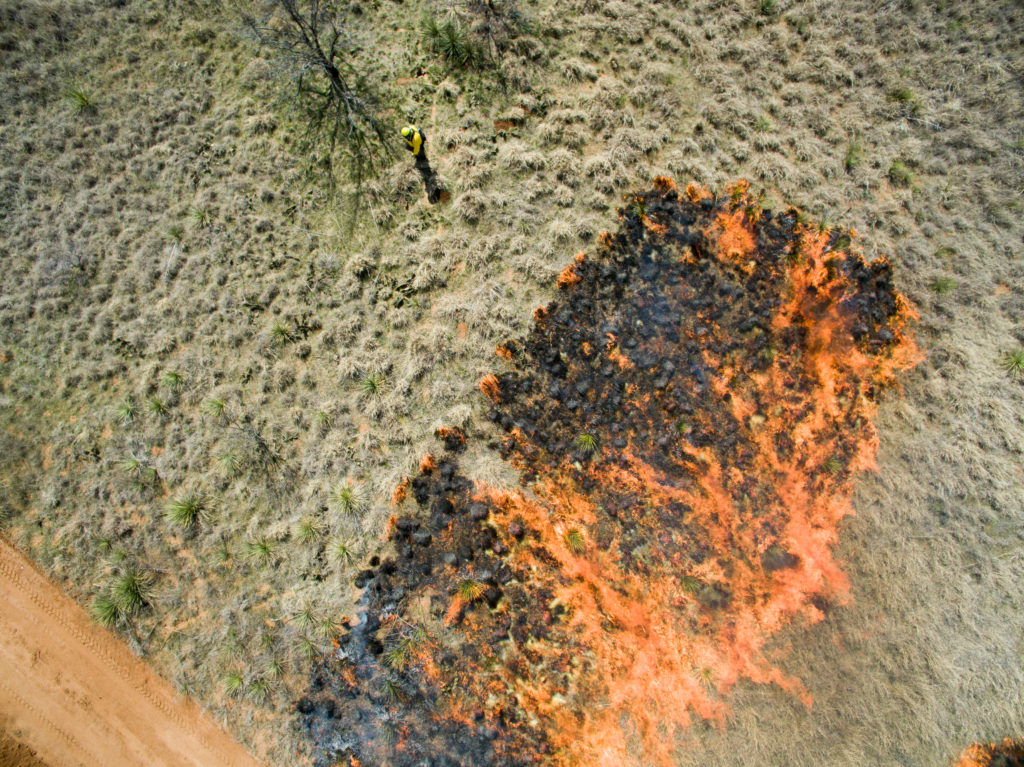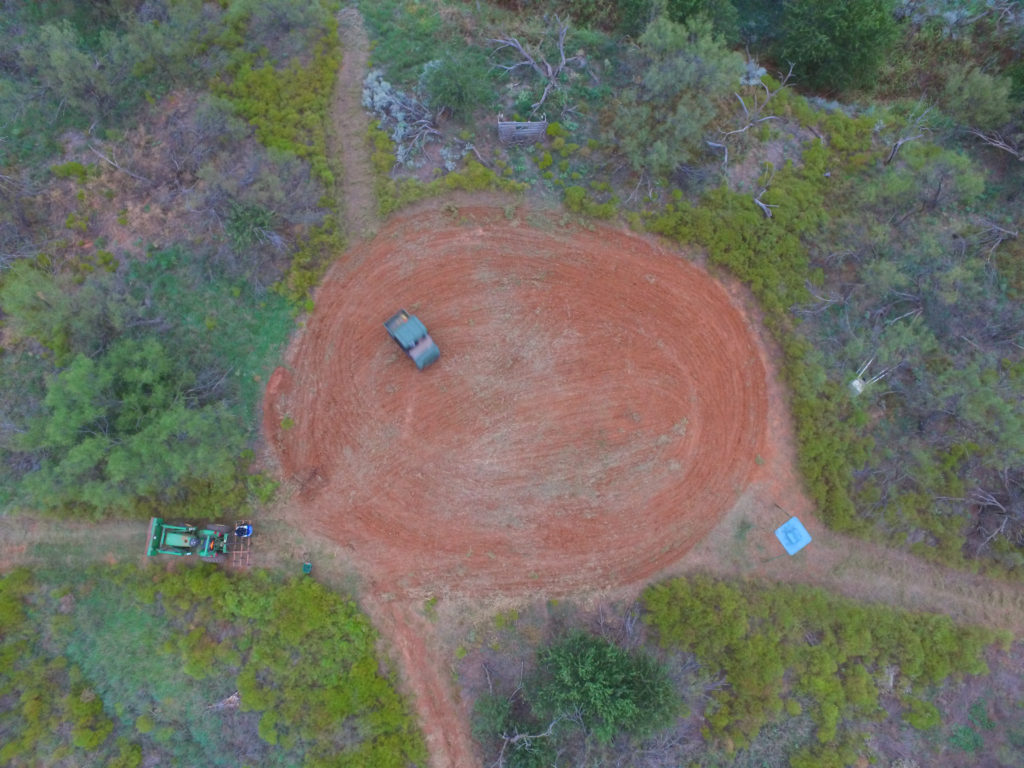HOME
Drones for Wildlife Management
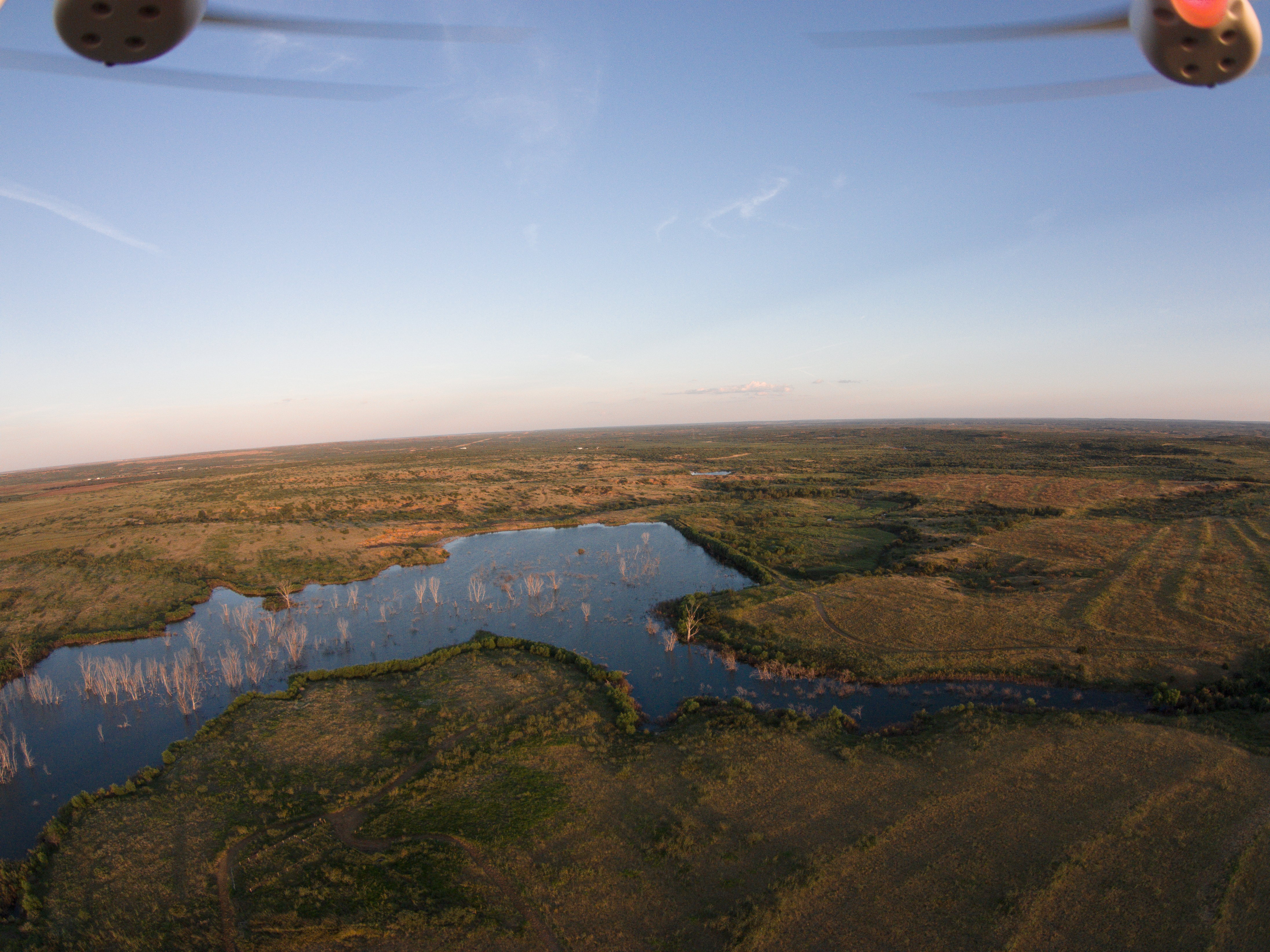
By Russell Graves
The feeling is scary and amazing all at the same time. Within minutes of my new unmanned aerial vehicle (UAV), or drone, arriving at my rural home north of Childress, Texas, I have it unboxed and ready for flight. Using technology not even available just a few years ago, I held the remote controller in my hands while I looked at my phone that’s attached to the controller. With a wireless connection, I can see on my phone what the UAV’s camera sees, and while the craft is still on the ground, I’m enthralled.
Starting the drone, the props instantly whir to life. While the craft idles, I go over my mental checklist on how to make it fly. Taking a deep breath and with a bit of nervousness, I accelerated the craft. Dust wafts from beneath it as it escapes the bounds of gravity for the first time under my control. In flying, altitude in an asset, so I accelerate the craft to climb and clear of any obstructions. Within a couple of seconds, it’s 100 feet above my front yard and hovering. Looking at the drone and then back at my iPhone, I see my house and yard in a way I’ve never seen it before.
The way to learn to walk is to take baby steps, the same as flying a drone. My first baby step in learning to fly was to travel linearly- straight away and straight back. As I fly, I can see my property in an intimate way that I’ve never seen before. Every tree and gully is clearly visible in astounding detail. I’ve flown over the place in a helicopter and airplane before, but I’ve never been in control of the craft.
The ability to fly so low and see the ground below in such intricate detail is empowering. Before long, I’ve flown and photographed my whole property and built a cache of photos that I can analyze once I’m done flying.
To read more pick up a copy of the August 2017 NTFR issue. To subscribe call 940-872-5922.
HOME
Preparing Spring Gardens
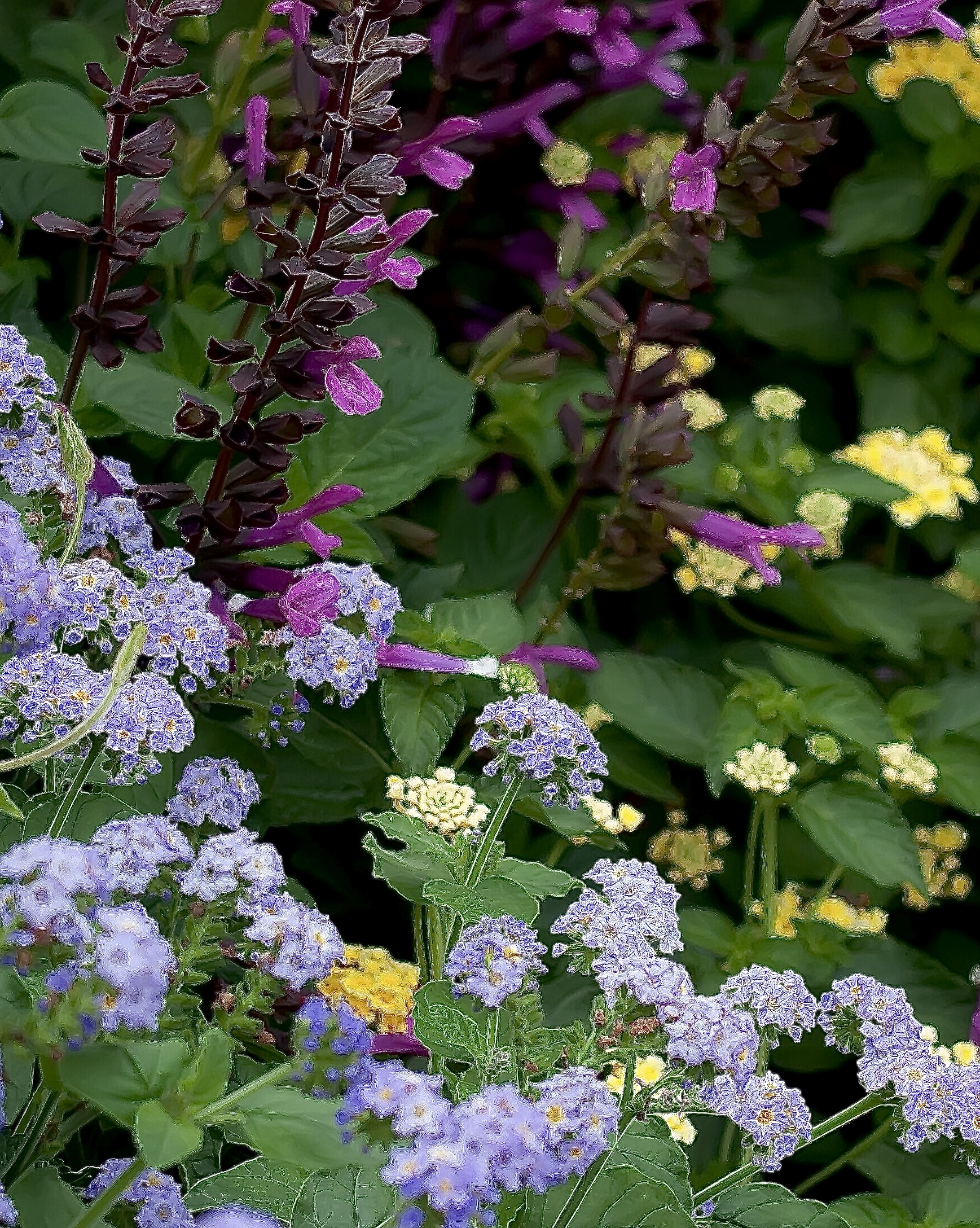
By Hannah Claxton | Editor
The North Texas area is located within USDA Hardiness zones seven and eight. The zones are categorized by predicted low temperatures for winter and timing of the first and last frosts.
Zone seven usually has winter low temps between 0 and 10 degrees F with the average date of the first frost falling between Oct. 29 and Nov. 15 and the average date of the last frost falling between March 22 and April 3.
Overall, these two zones have similar climates and growing conditions, making the options for timing and variety within a garden very similar.
In these zones, cool-season crops should go in the ground in March, meaning that soil preparation should start now.
To read more, pick up a copy of the January edition of North Texas Farm & Ranch magazine, available digitally and in print. To subscribe by mail, call 940-872-5922.
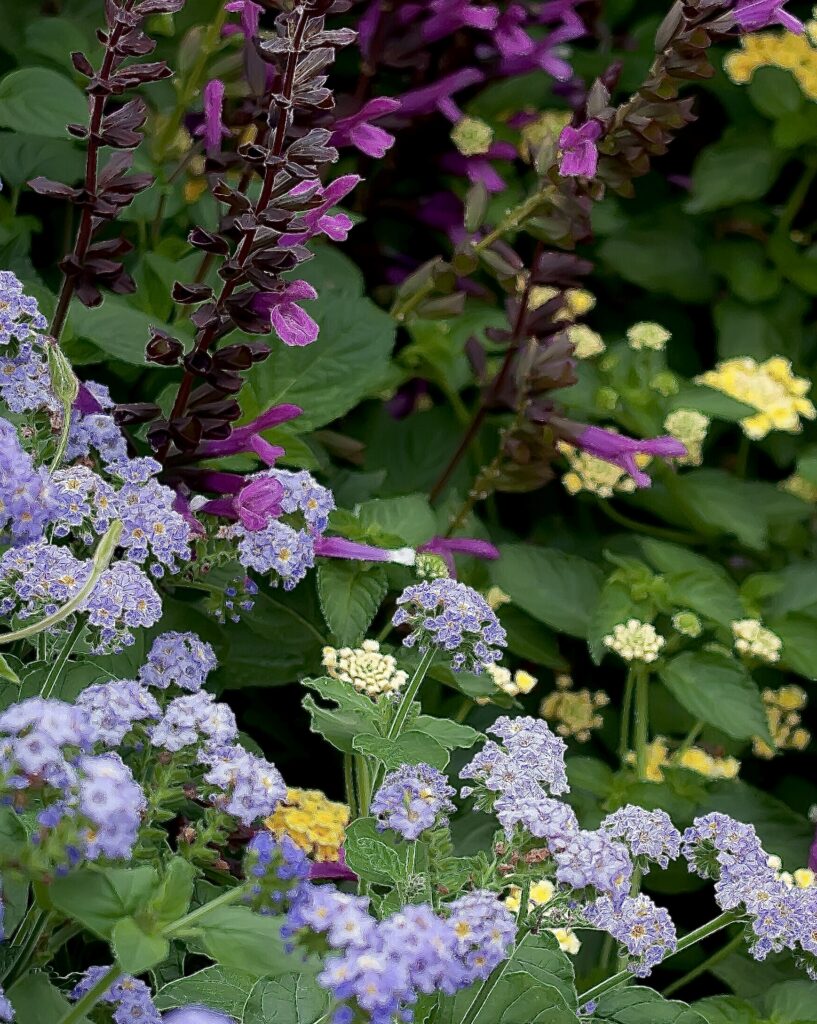
HOME
Equine Vaccinations
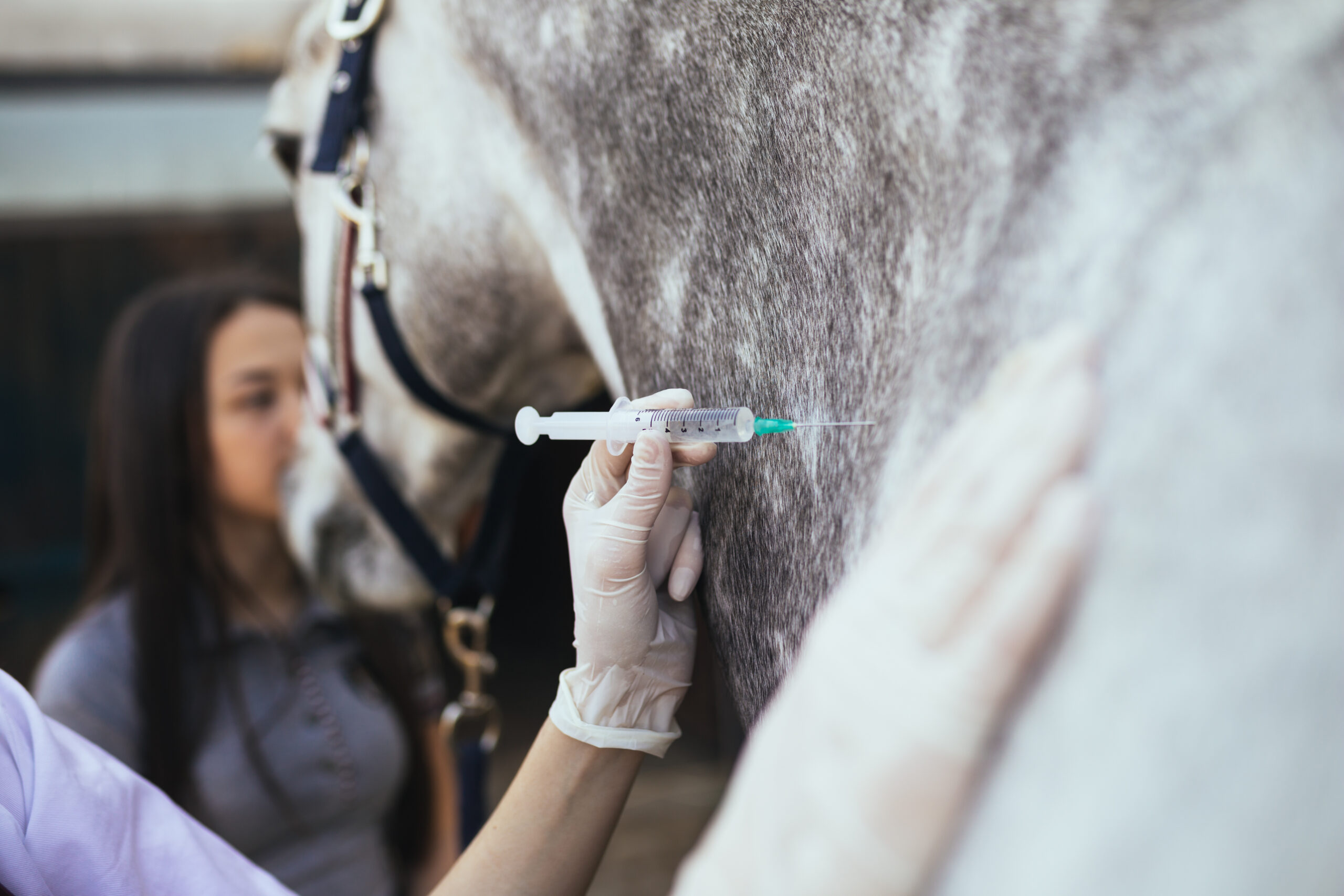
By Heather Lloyd
Vaccinations are a critical component of maintaining the health and well-being of horses, especially in environments where they are exposed to other animals, such as in the sport, show and performance arenas. Horses, like all animals, are susceptible to various infectious diseases that can spread quickly and cause serious harm.
A routine vaccination schedule helps prevent the spread of these diseases by preparing the horse’s immune system.
To read more, pick up a copy of the November edition of North Texas Farm & Ranch magazine, available digitally and in print. To subscribe by mail, call 940-872-5922.
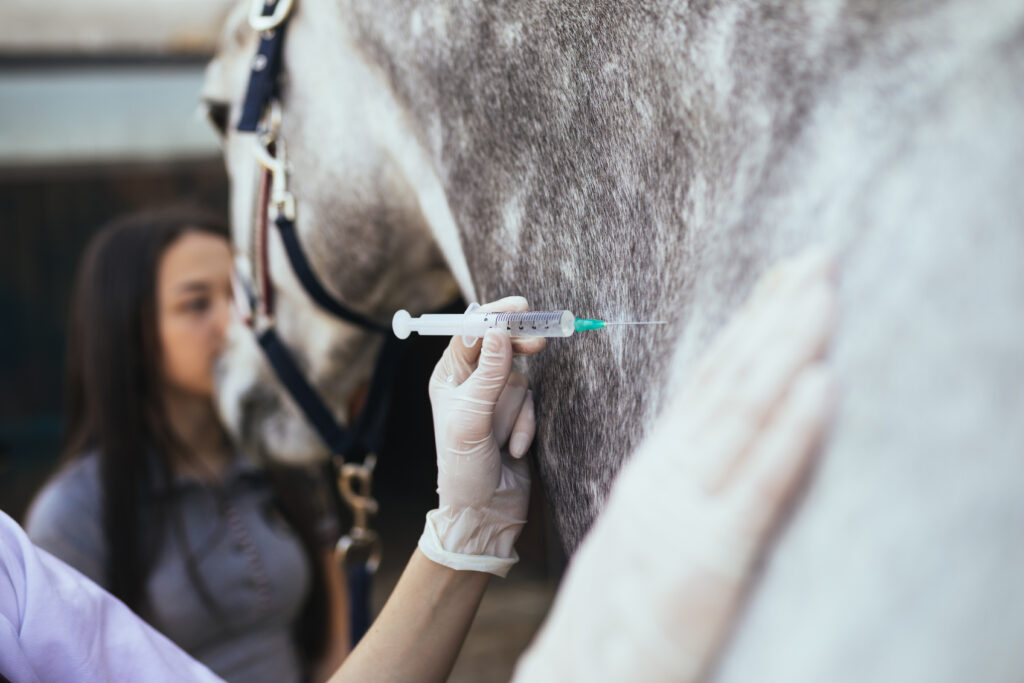
HOME
Wichita Falls Area Cattlewomen

Having herds on a controlled breeding schedule means that we have a predictable calving schedule, and while it’s only over a couple of months, for us it does fall right after the start of the year. I lobby annually to call ours the “Winter calving season”, but I am outvoted and my husband still refers to it as Spring. Unlike producers in our Northern States, we don’t have to contend with brutally harsh winter weather, and on those rare times we do, thankfully it is not for extended periods. Regardless of whether you have a Spring or a Fall calving schedule, the health of a newborn calf begins with the mother’s health, and the mother’s health is largely dependent on the producer.
To read more, pick up a copy of the November edition of North Texas Farm & Ranch magazine, available digitally and in print. To subscribe by mail, call 940-872-5922.

-

 Country Lifestyles2 years ago
Country Lifestyles2 years agoScott & Stacey Schumacher: A Growth Mindset
-

 Country Lifestyles8 years ago
Country Lifestyles8 years agoStyle Your Profile – What your style cowboy hat says about you and new trends in 2017
-

 HOME8 years ago
HOME8 years agoGrazing North Texas – Wilman Lovegrass
-

 Equine1 year ago
Equine1 year agoThe Will to Win
-

 Outdoor10 years ago
Outdoor10 years agoButtercup or Primrose?
-

 Country Lifestyles5 years ago
Country Lifestyles5 years agoAmber Crawford, Breakaway Roper
-

 Country Lifestyles9 years ago
Country Lifestyles9 years agoJune 2016 Profile – The man behind the mic: Bob Tallman
-

 Country Lifestyles8 years ago
Country Lifestyles8 years agoDecember 2016 Profile, Rusty Riddle – The Riddle Way

